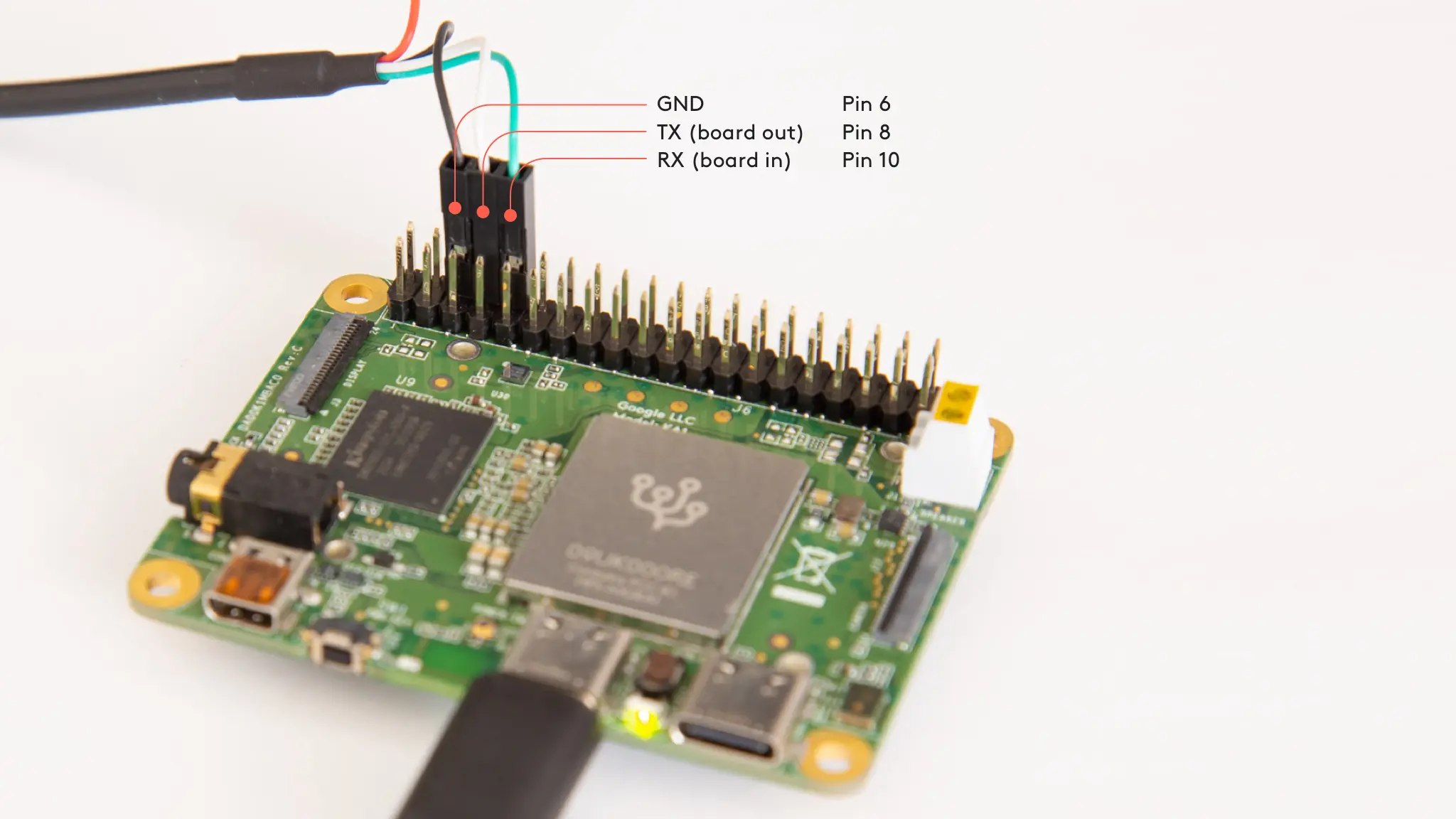linux 环境下使用 c++ 实现读写串口代码
嵌入式开发过程中,在 Linux 环境下通过串口读写数据是比较常见的场景,今天分享一下我平时使用的串口读写静态接口,不同于之前用rust实现的那个,这次用 c/c++ 实现。
代码
serial.cpp
1
2
3
4
5
6
7
8
9
10
11
12
13
14
15
16
17
18
19
20
21
22
23
24
25
26
27
28
29
30
31
32
33
34
35
36
37
38
39
40
41
42
43
44
45
46
47
48
49
50
51
52
53
54
55
56
57
58
59
60
61
62
63
64
65
66
67
68
69
70
71
72
73
74
75
76
77
78
79
80
81
82
83
84
85
86
87
88
89
90
91
92
93
94
95
96
97
98
99
100
101
102
103
104
105
106
107
108
109
110
111
112
113
114
115
116
117
118
119
120
121
122
123
124
125
126
127
128
129
130
131
132
133
134
135
136
137
138
139
140
141
142
143
144
145
146
/*
* @Author: 熊义 JassimXiong@gmail.com
* @Date: 2024-01-23 08:01:18
* @LastEditors: xiongyi jassimxiong@gmail.com
* @LastEditTime: 2024-01-23 09:21:54
* @FilePath: serial.cpp
* @Description:
*
* Copyright (c) 2024 xxxx, 版权所有
*/
#include "serial.h"
#include "logger.h"
#include <errno.h>
#include <fcntl.h>
#include <stdlib.h>
#include <unistd.h>
namespace Serial {
int open(const char *port_name) {
auto fd = ::open(port_name, O_RDWR | O_NOCTTY | O_NDELAY); // 非阻塞
if (fd < 0) {
LOGE("open_port: Unable to open {}", port_name);
return -1;
}
return fd;
}
int close(int fd) { return ::close(fd); }
int set(int fd, speed_t speed, int bits, char event, int stop) {
struct termios options;
if (tcgetattr(fd, &options) != 0) {
LOGE("set_option: Unable to get termios");
return -1;
}
options.c_cflag |= (CLOCAL | CREAD); //(本地连接(不改变端口所有者)|接收使能)
options.c_cflag &= ~CSIZE; //屏蔽字符大小位
options.c_cflag &= ~CRTSCTS; //不使用流控制
switch (bits) {
case 7:
options.c_cflag |= CS7;
break;
case 8:
options.c_cflag |= CS8;
break;
default:
LOGE("Unsupported data size");
return -1;
}
switch (event) {
case 'O': // 奇校验
options.c_cflag |= PARENB;
options.c_cflag |= PARODD;
options.c_iflag |= (INPCK | ISTRIP);
break;
case 'E': // 偶校验
options.c_iflag |= (INPCK | ISTRIP);
options.c_cflag |= PARENB;
options.c_cflag &= ~PARODD;
break;
case 'N': // 无校验
options.c_cflag &= ~PARENB;
break;
default:
LOGE("Unsupported parity");
return -1;
}
if (stop == 1) {
options.c_cflag &= ~CSTOPB;
} else if (stop == 2) {
options.c_cflag |= CSTOPB;
} else {
LOGE("Unsupported stop bits");
return -1;
}
options.c_iflag &= ~(ICRNL | IXON); //~(将CR映射到NL|启动出口硬件流控)
options.c_oflag = 0; //输出模式标志
options.c_lflag = 0; //本地模式标志
cfsetispeed(&options, speed); //设置输入速度,波特率
cfsetospeed(&options, speed); //设置输出速度,波特率
__attribute__((unused)) auto ret = tcsetattr(fd, TCSANOW, &options); //设置属性(termios结构)
return 0;
}
int read(int fd, char *buf, int len, int timeout /*毫秒*/) {
int ret = 0;
int ava = 0;
fd_set read_fds;
struct timeval tv;
tv.tv_sec = timeout / 1000; // seconds
tv.tv_usec = (timeout % 1000) * 1000; // microseconds
while ((len - ava) > 0) {
FD_ZERO(&read_fds);
FD_SET(fd, &read_fds);
ret = select(fd + 1, &read_fds, NULL, NULL, &tv);
LOGD("select return: {}", ret);
if (ret < 0) {
LOGD("select errno={}", errno);
// 错误码为11表示重试
if (errno == 11) {
continue;
} else {
ava = ret;
break;
}
} else if (ret == 0) {
// 超时
break;
} else {
ret = ::read(fd, buf + ava, len - ava);
if (ret < 0) {
ava = ret;
break;
}
ava += ret;
}
}
return ava;
}
int write(int fd, char *buf, int len) {
int ret = 0;
int ava = 0;
if (buf == NULL || len <= 0) {
return -1;
}
// 清空串口的接收缓冲数据和发送缓冲数据
tcflush(fd, TCIOFLUSH);
while ((len - ava) > 0) {
ret = ::write(fd, buf + ava, len - ava);
if (ret < 0) {
LOGD("::write errno={}", errno);
if (errno == 11) {
continue;
} else {
ava = ret;
break;
}
}
ava += ret;
}
return ava;
}
} // namespace Serial
serial.h
1
2
3
4
5
6
7
8
9
10
11
12
13
14
15
16
17
18
19
20
21
22
23
24
25
26
27
28
29
30
31
32
33
34
35
36
37
38
39
40
41
42
43
44
45
46
47
48
49
50
51
52
53
54
55
56
57
58
59
60
61
62
/*
* @Author: xiongyi jassimxiong@gmail.com
* @Date: 2024-01-23 07:51:20
* @LastEditors: xiongyi jassimxiong@gmail.com
* @LastEditTime: 2024-01-23 09:53:03
* @FilePath: serial.h
* @Description:
*
* Copyright (c) 2024 xxxx, 版权所有
*/
#ifndef __SERIAL_H__
#define __SERIAL_H__
#include <termios.h>
namespace Serial {
/**
* @brief 打开串口,返回文件描述符
* @param port_name 串口名
* @return int 文件描述符: -1:fail others:fd
*/
int open(const char *port_name);
/**
* @description: 关闭串口
* @param {int} fd
* @return {*}
*/
int close(int fd);
/**
* @brief 设置串口通信参数
* @param fd 串口文件描述符
* @param speed 波特率: B4800、B9600、B115200....etc
* @param bits 数据位: 7、8
* @param event 奇偶校验位: 'N':None、'O':Odd、'E':Even
* @param stop 停止位: 1、2
* @return int 0:success,-1:fail
*/
int set(int fd, speed_t speed, int bits, char event, int stop);
/**
* @brief 读取串口数据
* @param fd 串口文件描述符
* @param buf 存放数据内容
* @param len 需要读取的数据长度
* @param timeout 超时时间,单位毫秒
* @return int 读取回来的可用数据长度
*/
int read(int fd, char *buf, int len, int timeout);
/**
* @description: 向串口写入数据,将buf缓冲区中的数据写入串口,返回实际写入的字节数。
* @param {int} fd
* @param {char} *buf
* @param {int} len
* @return {*}
*/
int write(int fd, char *buf, int len);
} // namespace Serial
#endif // __SERIAL_H__
本文由作者按照 CC BY 4.0 进行授权
